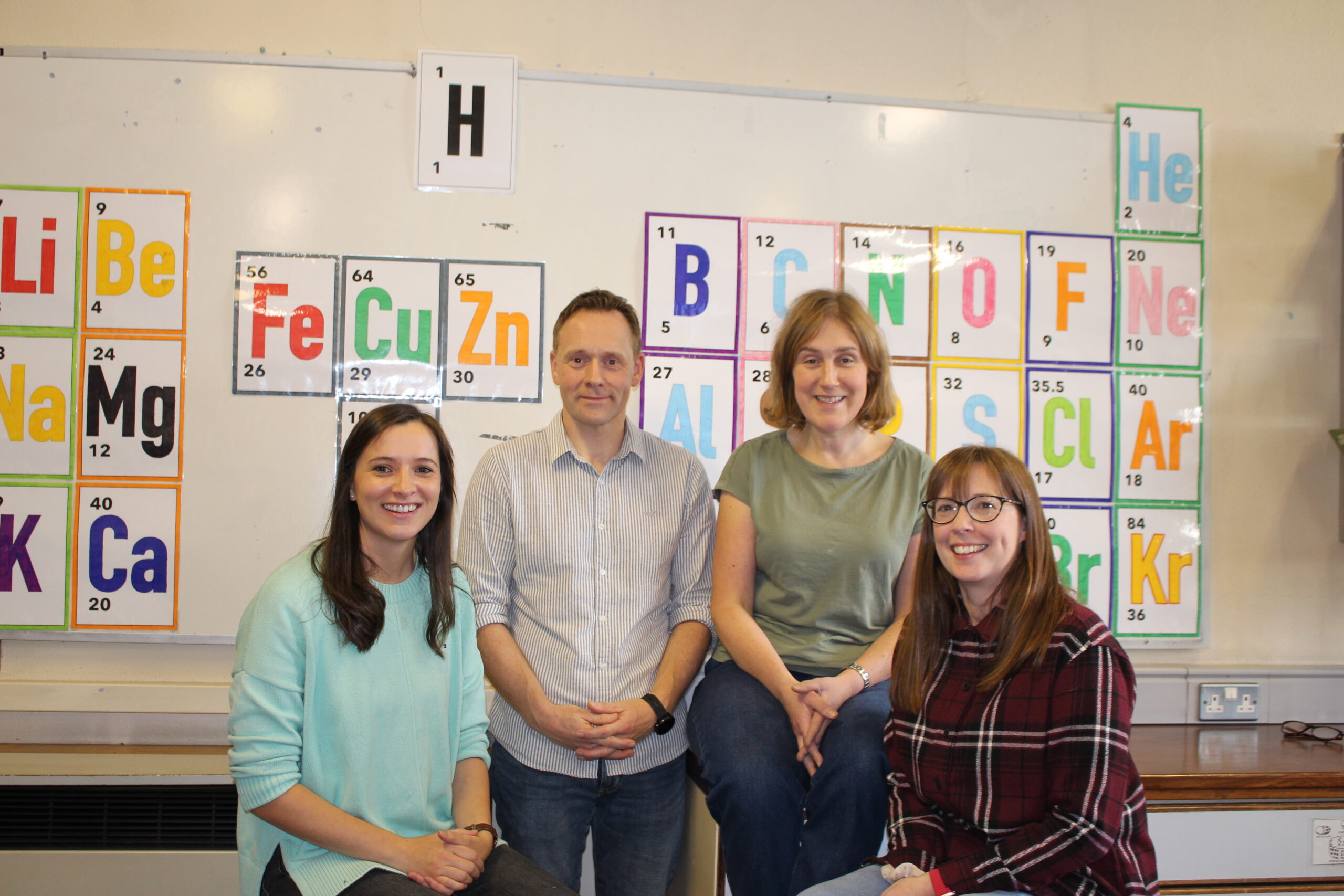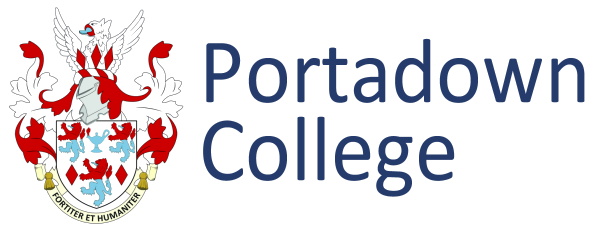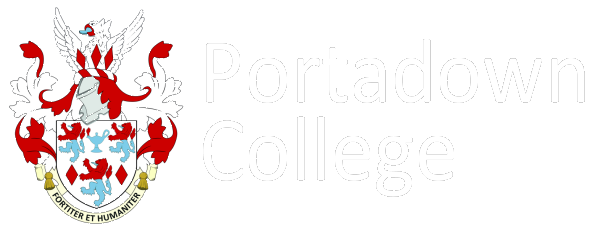Mr D Spence (Head of Department)
Mrs L Totten
Mrs J Wray
Mrs R Crooks
Mrs A Stafford (Technician)
Chemistry

Chemistry is concerned with the building blocks of all materials – the elements. We are interested in the properties of these elements, how they react together, and the properties of the compounds that are formed. Chemistry is a challenging and very interesting subject that involves a lot of practical work and leads to a large variety of very rewarding careers such as: Medicine, Dentistry, Pharmacy, Physiotherapy, Veterinary Science, Engineering, Research, and Teaching.
The Chemistry Department aims to foster a learning environment in which students can develop a good overall knowledge of the subject and be thoroughly prepared for the relevant examinations. We believe that diligence and enjoyment create a fantastic atmosphere for learning to take place.
The teaching and resources provided by the department are of a very high standard and there is a lot of examining experience at the most senior level with CCEA.
GCSE Chemistry
Examination Board: CCEA
What is GCSE Chemistry about?
Chemistry is a challenging science requiring serious study. While Chemistry requires understanding and recall of specific scientific facts, students are also expected to be able to conduct experiments and interpret observations in terms of scientific principles and to carry out relevant calculations.
Students are encouraged to develop their curiosity about the material and physical worlds and the course provides insight into and experience of how science works. It also enables students to engage with Chemistry in their everyday lives and to make informed choices both about further study in Chemistry and their careers.
What will I study and how will I be assessed?
| Content | Assessment | Weighting |
| Unit 1 Structures, Trends, Chemical Reactions, Quantitative Chemistry and Analysis | Written examination (1 hour 15 mins)
| 35% |
| Unit 2 Further Chemical Reactions, Rates and Equilibrium, Calculations and Organic Chemistry | Written examination (1 hour 30 mins)
| 40% |
| Unit 3 Practical Skills | Booklet A (7.5%) Two externally marked pre-release practicals in Year 12.
Booklet B (17.5%) External written examination on practical work. (1 hour) | 25% |
What can this subject lead to?
Students who are interested in pursuing a career in engineering, science teaching, medicine or a medically related area should choose to study all three of the separate Sciences (Biology, Chemistry and Physics) at GCSE level. This will ensure that these students will satisfy the university admissions criteria for medicine, dentistry, veterinary medicine, pharmacy, engineering etc. Prospective students are advised that GCSE Chemistry is required by many universities for ‘non-chemistry’ courses such as Food Science and Dietetics.
Chemistry
Examination Board: CCEA
What is A Level Chemistry about?
Chemistry is often described as the most versatile science, and it fits in well with the study of the other sciences. It is the science most often required by universities and higher education establishments for students to embark on degrees in medicine, dentistry, pharmacology, and forensic and veterinary science. It is a very challenging and competitive subject in which students acquire skills that are valued in higher education and in the workplace such as research, investigation, analysis, communication, problem solving and working with others.
What will I study and how will I be assessed?
| AS Content | Assessment | Weighting |
| Unit 1 Basic Concepts in Physical and Inorganic Chemistry | External Examination
| 40% of AS
|
| Unit 2 Further Physical and Inorganic Chemistry and an Introduction to Organic Chemistry | External Examination
| 40% of AS
|
| Unit 3 Basic Practical Chemistry
| 1 hour 15 minutes External Examination involving practical tasks (laboratory) 1 hour 15 minutes External Examination on practical knowledge (examination hall) | 20% of AS
|
| A2 Content | Assessment | Weighting |
| Unit 1 Further Physical and Organic Chemistry | External Examination
| 40% of A2
|
| Unit 2 Analytical, Transition Metals, Electrochemistry and Organic Nitrogen Chemistry | External Examination
| 40% of A2 |
| Unit 3 Further Practical Chemistry
| 1 hour 15 minutes External Examination involving practical tasks (laboratory) 1 hour 15 minutes External Examination on practical knowledge (examination hall) | 20% of A2 |
Are there any particular qualities or skills I should have to study this course and to what kind of careers can it lead?
Chemistry can lead to a wide variety of rewarding careers including medicine, dentistry, veterinary medicine, pharmacy, engineering, research and food science.
Entry Requirements: Students seeking to study AS Chemistry must have 315 uniform marks or above (a high grade B) in GCSE Chemistry, or a AA grade or above in GCSE Double Award Science, along with a minimum of a B grade in GCSE Mathematics. All GCSE units in these subjects must be taken at Higher Tier.
Support Materials
A detailed specification and past papers and mark schemes can be found here.
No current updates

